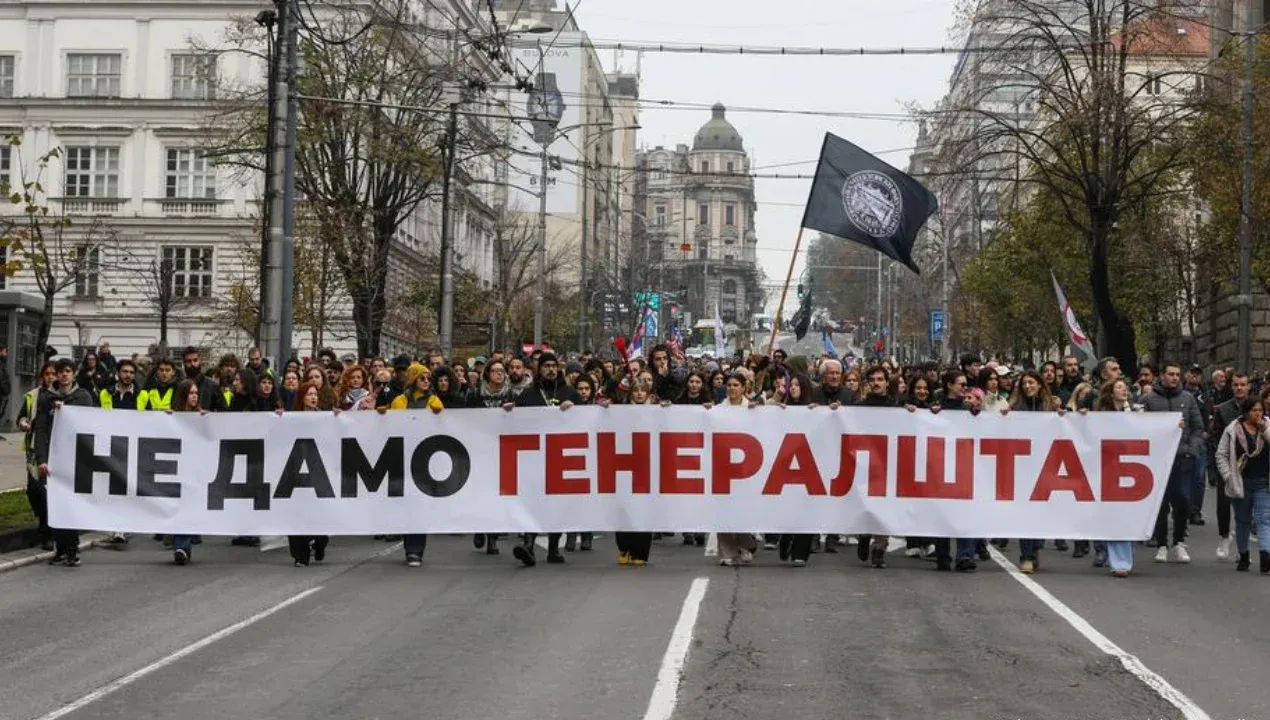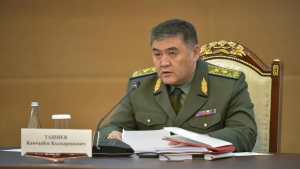Construction project in Belgrade divides the public

Events surrounding a controversial construction project in Belgrade, the capital of Serbia, on November 11 have split the country's public into two opposing views. This was reported by Zamin.uz.
Affinity Partners, a company led by investor Jared Kushner, the son-in-law of former US President Donald Trump, planned to build a large hotel complex on the site of the former General Staff buildings of the Yugoslav People's Army, which were destroyed during NATO's 1999 bombing. However, this initiative was met with strong opposition from Belgrade residents and activists.
Thousands of people gathered in the city center to form a "living barrier" in the area where the historic buildings are located. Protesters even drew a symbolic red line to block access to this area.
According to the activists, they are not against law enforcement but are demanding justice. They believe that President Aleksandar Vučić is trying to improve relations with the US through this decision.
Some consider this move a political step aimed at easing sanctions imposed on Serbia's oil industry. It is known that the US government introduced new economic sanctions against the company "Gazprom Neft" at the beginning of 2024.
This decision had a significant impact on Serbia, as the NIS company, the country's main fuel supplier, is controlled by Gazprom. Additionally, although the US Treasury initially granted temporary exemption from sanctions to the Serbian company, this privilege was later revoked.
As a result, doubts about Kushner's project increased, and the public began to perceive the government's decision as part of a political agreement with Washington. In May 2024, the Serbian government signed a 99-year lease agreement with Affinity Partners for the former General Staff buildings and revoked the buildings' "cultural heritage" status in parliament.
This decision faced harsh criticism not only from architects but also from the wider public. At the same time, the Serbian prosecutor's office began investigating the legality of the deal.
Some officials are accused of fraud and document forgery. President Vučić, however, denied all allegations and emphasized that the project is being implemented legally.
According to him, this project aims not only to build a modern city center but also to remember the victims of NATO strikes. However, a recently adopted new law allowed Affinity Partners to start construction without waiting for the full formalization of all permits.
This sparked sharp protests from the public and international organizations. The protests in Belgrade are not just about protecting architectural monuments but also raise issues of political independence and national pride.
For many, this project is about respecting the memory of those who died in NATO strikes and defining Serbia's attitude toward its past. Therefore, this construction project raises important questions not only about erecting new buildings but also about Serbia's future, direction, and historical values.







